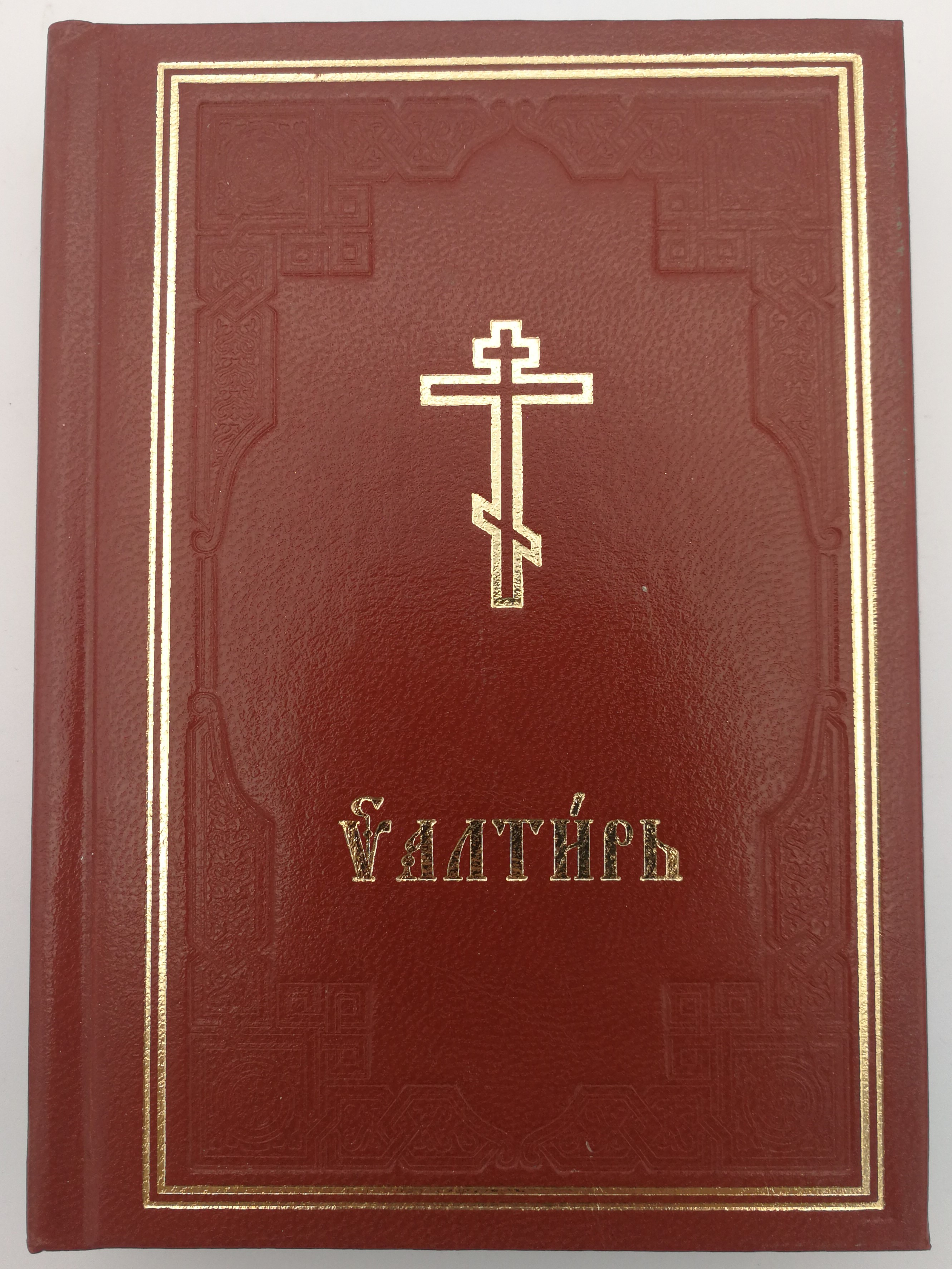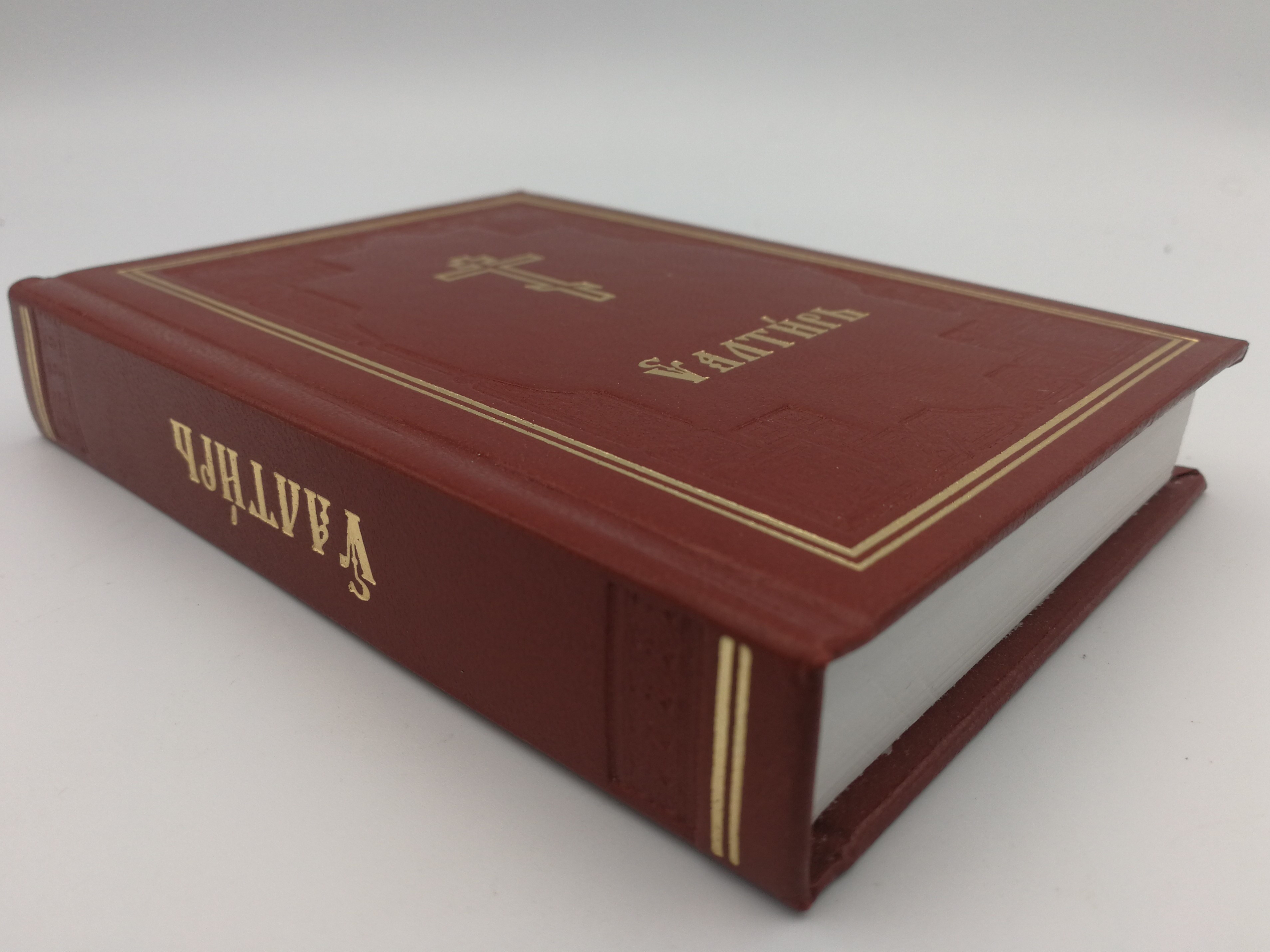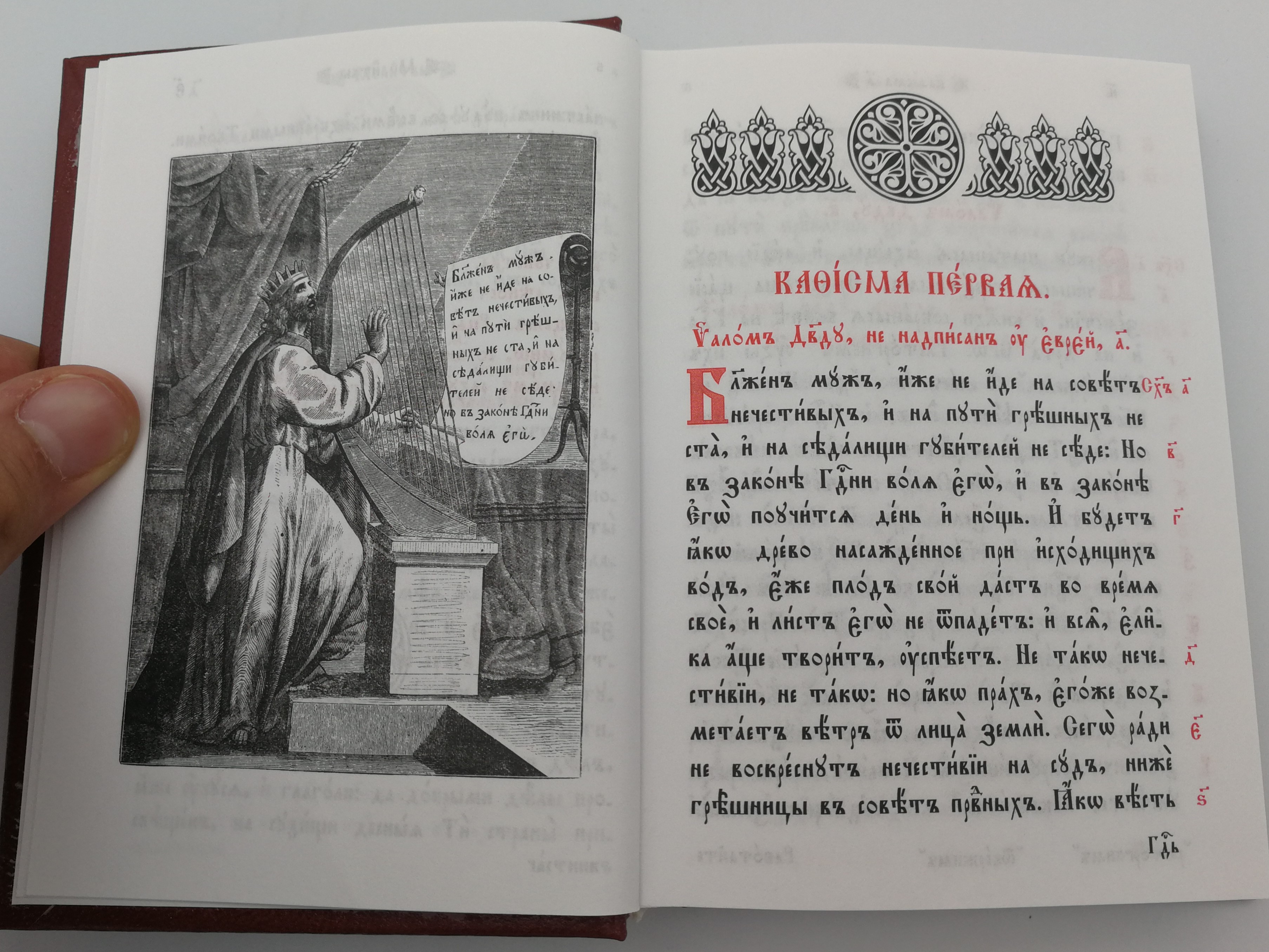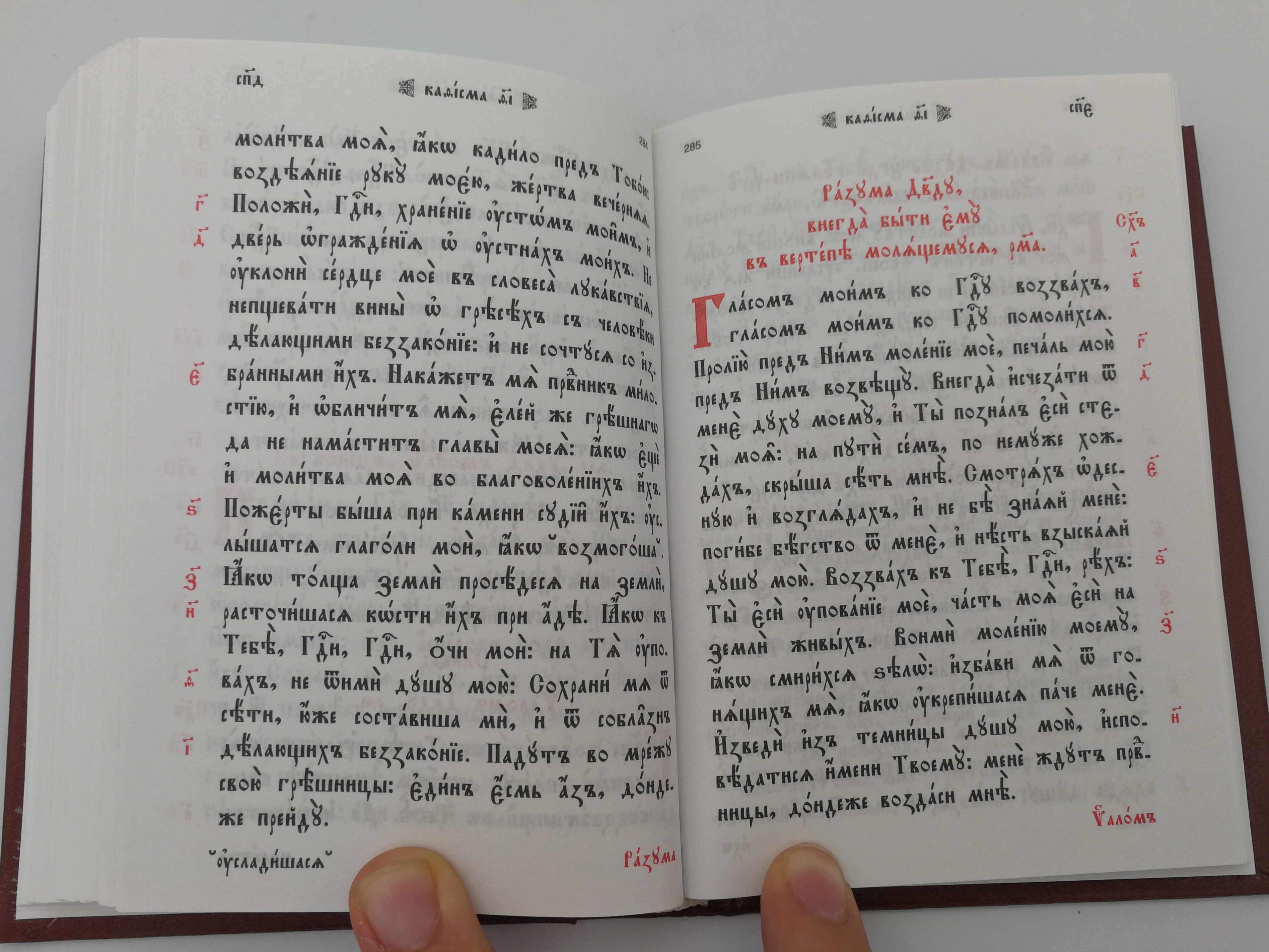Description
Ukrainian Orthodox Psalter in Church Slavonic
Український православний псалтир церковнослов'янською мовою
Overview | Огляд
The Ukrainian Orthodox Psalter in Church Slavonic is a beautifully bound hardcover edition published by the Kiev-Pechersk Lavra Publishing House in 2009. This edition of the Psalter is presented in Church Slavonic, the liturgical language of the Orthodox Church. The Psalter holds a central place in Orthodox Christian worship, often used in daily prayer and services. The book is a valuable spiritual resource, offering timeless prayers and hymns that are essential to the liturgical tradition of the Ukrainian Orthodox Church.
Український православний псалтир церковнослов'янською мовою є чудово оздобленим виданням в твердій обкладинці, виданим видавництвом Києво-Печерської Лаври у 2009 році. Це видання Псалтиря подається церковнослов'янською мовою, яка є літургійною мовою Православної Церкви. Псалтир займає центральне місце в православному богослужінні, часто використовується у щоденних молитвах і службах. Книга є цінним духовним ресурсом, який містить безсмертні молитви та гімни, що є важливими для літургійної традиції Української Православної Церкви.
Product Features | Характеристики продукту
- Product Type | Тип продукту: Hardcover
- Pages | Кількість сторінок: 416
- Publisher | Видавець: Kiev-Pechersk Lavra Publishing
- Language | Мова: Church Slavonic / Славе́нскїй ѧ҆зы́къ
- Publication Year | Рік видання: 2009
Interesting Facts | Цікаві факти
-
The Psalter in Church Slavonic is integral to the Orthodox Christian liturgy, used for chanting during divine services, and often recited in monasteries.
-
Church Slavonic has preserved its historical form for centuries and remains the sacred language for many Orthodox churches, including the Ukrainian Orthodox Church.
-
The Kiev-Pechersk Lavra Publishing House is renowned for producing liturgical and theological texts that contribute to preserving the spiritual heritage of Eastern Orthodoxy.
-
This Psalter is not only a liturgical book but also a tool for personal devotion, offering prayers and Psalms for meditation and reflection.
-
Псалтир церковнослов'янською мовою є невід'ємною частиною православного християнського богослужіння, використовується для співу під час божественних служб і часто читається в монастирях.
-
Церковнослов'янська мова зберегла свою історичну форму протягом століть і залишилась священною мовою для багатьох православних церков, включаючи Українську Православну Церкву.
-
Києво-Печерська Лавра є відомим видавництвом, яке випускає літургійні та теологічні тексти, що сприяють збереженню духовної спадщини Східного Православ'я.
-
Цей Псалтир є не тільки літургійною книгою, а й засобом для особистої побожності, який пропонує молитви та псалми для медитації та роздумів.
Publishers | Видавці
The Kiev-Pechersk Lavra Publishing House is a prestigious publisher known for producing a range of liturgical, theological, and spiritual texts for Orthodox Christians. It plays an important role in the preservation and dissemination of the Orthodox Christian faith in Ukraine.
Видавництво Києво-Печерської Лаври є престижним видавцем, відомим випуском літургійних, теологічних і духовних текстів для православних християн. Воно відіграє важливу роль у збереженні та поширенні православної християнської віри в Україні.
We value your feedback! | Ваша відгук важливий для нас!
Share your experience with this book and help others make an informed decision. Your review is important to us!
Поділіться своїм досвідом з цією книгою, щоб допомогти іншим прийняти обґрунтоване рішення. Ваш відгук важливий для нас!
Hashtags | Хештеги
#UkrainianOrthodox #ChurchSlavonic #Psalter #OrthodoxLiturgy #OrthodoxChristianity #UkrainianFaith #KievPecherSkLavra #SpiritualBooks #OrthodoxDevotion #ChurchTradition
#ПравославніКниги #ЦерковноСлов'янськаМова #Псалтир #ПравославнеБогослужіння #УкраїнськаПравославнаЦерква #ДуховнаЛітература #Молитовники #ЛітургійніТексти








































